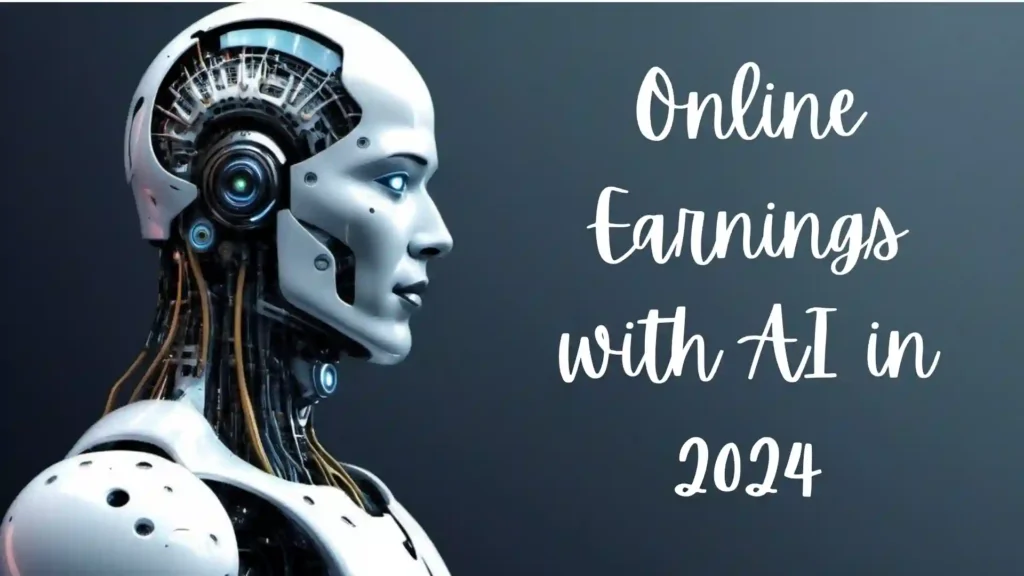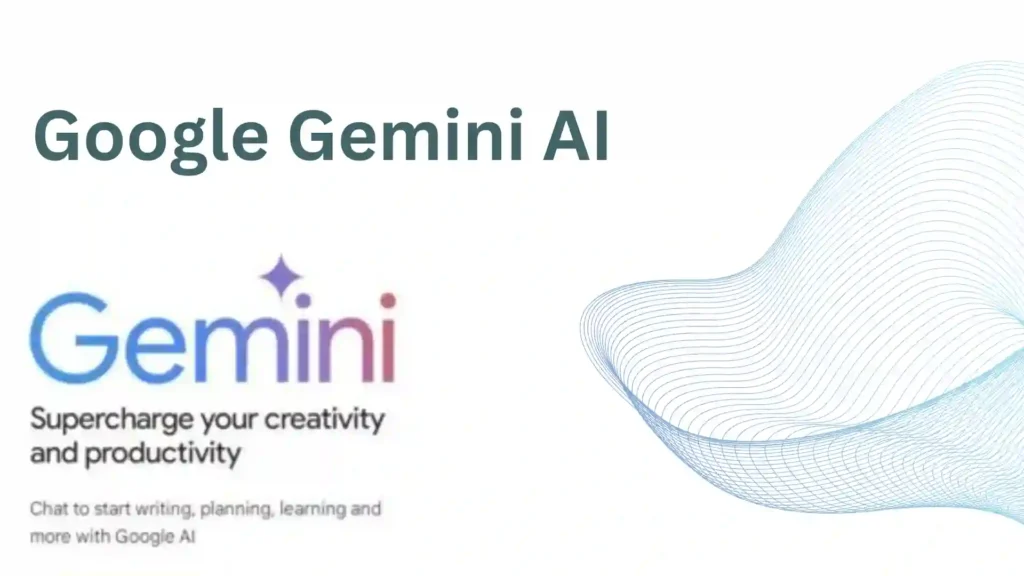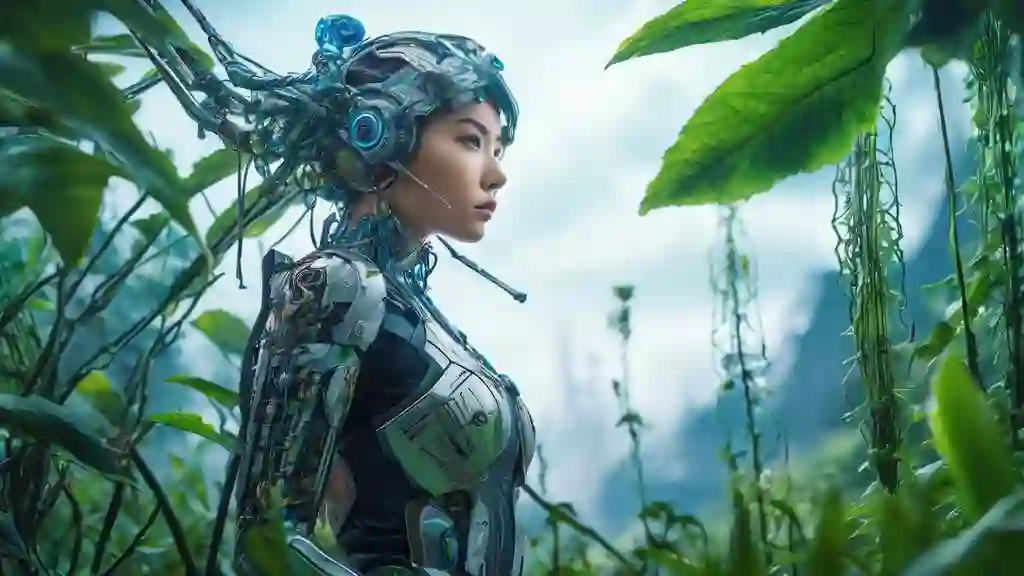AI is now a leading component in industries, economies, and our interactions with the environment. Regarding future trends, the development of the artificial intelligence engine is regarded as one of the most interesting and promising.
But how will be the future of AI engine technology? Investigating this interesting field and discovering what can be expected in the future is necessary.
Introduction: How will be the Future of AI Engine Technology
However, the journey of AI has only begun in the last few years, and we are only at the beginning of this path. The question of how the future of AI engine technology will look is one that everyone from the tech-savvy millennial to the corporate executive chief is asking.
Understanding AI Engine Technology
But to answer the question of ‘how will be the future of AI engine technology’ we first need to know what AI engine technology is. AI engine may be defined as the foundation of an AI system charged with the responsibilities of analyzing data, learning from such data, and making conclusions or predictions.
It is similar to the central processing unit of the AI system and includes processes such as algorithms, neural networks, and other high-level computations.
What Makes an AI Engine
An AI engine is a structure that commonly includes machine learning, data processing, and neural networks. To be precise, these components assist in analyzing data, identifying patterns, and making predictions or decisions based on the processed information.
How AI Engines Learn
AI engines are trained and this means that large datasets are input into the systems with a view of identifying some relationship between the two. This training prepares them to be able to make realistic predictions and decisions in real-life scenarios.
This is similar to a teacher who takes a child through a learning process where he is shown lots of pictures of various animals and told when he is wrong in identifying them.
The Current State of Intelligent Actors
First of all, to draw a future forecast on the development of AI engine technology, one should be familiar with today’s state. AI engines are already highly sophisticated nowadays and are capable of doing tasks such as translation, identifying an image, and even driving cars.
Current Capabilities
AI engines today can:
- Translate languages as it is spoken in real time.
- Capable of identifying and categorizing images as well as videos.
- Drive cars autonomously.
- Help in diagnosing various illnesses, diseases, and health conditions.
- Holders of power, such as the influential voices in our lives like Siri and Alexa.
Limitations
Nevertheless, current AI engines have their deficits Today’s sophisticated AI engines have some constraints. To operate, it means that they have to be constantly introduced to a lot of data to learn, are not good at handling anything outside their training data and sometimes will make decisions that nobody expected.
These limitations described here define areas where further developments are required in the future.
Key Innovations
Several inventions contribute to the development of the future of AI engine technology. These are the highlights of future advancements, It aims to address existing shortcomings and bring forth new possibilities.
Neural Network Improvements
Neural networks that form the basis of the Artificial Intelligence engines are also improving in complexity. Trends like deep learning and Neural Architecture Search for deep learning algorithms are empowering the AI engine and its functionality.
Integration with IoT
AI fusion with IoT is another interesting feature that is evident at the moment. This interaction makes it possible for the AI engines to handle information from different connected appliances, enabling the growth of intelligent homes, cities, and industries.
AI and Big Data
The infusion of artificial intelligence and big data as key elements contributes largely to innovation. While traditional computers are optimized for a specific data set, AI engines can instantly and simultaneously sift through large sets of data and identify data correlations.
Recent Innovations in Artificial Intelligence, Machine learning
Machine learning is the branch of AI, expanding ceaselessly to further predefine the aim of the AI engines.
Reinforcement Learning
Reinforcement learning is also worth mentioning, which is the instance where the AI engines adapt to the environment and get feedback. It is the concept where decisions can be made and strategies can be planned for execution in AI when the environment is complex and constantly changing.
Transfer Learning
Transfer learning allows the AI engines to perform the same degree of competence in multiple related tasks using the knowledge acquired earlier. This yields a marked decrease in the amount of data needed to train AI models while also making them more versatile and less time-consuming in training.
Explainable AI
Arguably, however, one of the major problems is that they are often so-called ‘black boxes’ and it’s hard to tell what the reasoning of an AI is. Suddenly, there appears to be a push for what was termed as Explainable AI to make the very engines more understandable and reveal how they came about the decisions.
Impact on Various Industries
As for the future of AI engine technology, the advancement will create another new era in our society and change the methods of our industries.
Healthcare
Healthcare is being revolutionized by AI engines, which help doctors in diagnosis, and prognostics, as well as in the determination of treatment plans for individual patients. Prospects for even higher precision and more efficient use of Artificial Intelligence-based Healthcare solutions can be expected in the future.
Finance
In the finance field, AI engines are optimizing fraud detection, and trader’s bots, and significantly improving customer relations by responding to such bots. The next steps will mainly be aimed at enhancing performance, as well as increasing the level of security.
Manufacturing
The golden age of artificial intelligence has led to advancement in robot technology and machine predictive maintenance in the manufacturing region. Thus, further optimizing the capabilities of AI engines will improve production rates and decrease time spent on recycling or maintenance.
Retail
Today, technology along with AI knowledge is helping retailers to organize their inventory, tailor their sales strategy and even look into consumer patterns. The development in the future is anticipated to append AI applications that are more complex thereby improving both the customers and the business as a whole.
Ethical Considerations
Based on these figures, it becomes pertinent to ask about the future of AI engine technology and also the ethical issues involved in its use.
Bias and Fairness
This is because AI engines are designed to learn from existing data and can mimic any existing injustices they are trained on. Minimizing the risks of bias in technology is important when it comes to the promotion of decency and the reduction of prejudicial decisions in AI.
Privacy Concerns
AI engines consume lots of data and this is often a cause for concern for people’s privacy. Maintaining this balance between data demands for the benefit of investors and privacy holdbacks will be a key issue in the future.
Accountability
If more and more decisions are being made by the business’s AI engines, then holding someone or something ethically or legally responsible for those decisions proves challenging. Out of this, we shall be required to set some standard codes of regulations with which to deal with this problem.
Challenges and Solutions
Yet, certain hurdles remain in the future of AI engine technology As the future of AI engine technology is full of opportunities it comes with certain issues. These are some of the challenges which, if addressed, can yield maximum benefits from AI.
Data Quality and Availability
This is particularly important in training the AI engines that drive intelligent operations since the information used in the processes must be of high quality. One of the major challenges will be procuring data sets from multiple sources that bear the same characteristics.
Computational Power
The processing needs of AI engines are high, and the computational resources for the same can be costly. Some of the solutions would require proactive enhancements in the composition of hardware along with significantly energy-efficient algorithms.
Integration with Existing Systems
AI engines have to be embedded into the established systems and networks and that is out of a long list of challenges. Especially, the creation of adjustments, needed for forming the integrating smooth combination, will also play an important role.
Future Trends to Watch
These trends will define the future of AI engine technology.
Edge AI
Edge AI is different from general Artificial Intelligence because it aims at processing data on devices without having to send this data to data centers in the network. That is why this approach is gaining popularity and can be characterized as a trend as it minimizes latency and provides increased privacy.
AI-Driven Automation
AI-driven automation will only grow further, changing industries and positions. It will improve overall efficiency however the workforce succession will need to be well-managed expertly.
Human-AI Collaboration
What is expected to be witnessed in the future is integrating human power with AI systems and software so that both humans and AI get to perform those operations best suited to each. This partnership will lead to more creativity in problem-solving on various issues as well as aid in decision-making on various issues.
Quantum Computing
Present-day quantum computing also promises to disrupt the applicative AI engine technologies with its greatly enhanced computational capabilities.
Quantum Algorithms
Quantum algorithms are the ones that can solve a problem many, many times faster than classical algorithms would be able to solve, thus improving the functionality of AI engines.
Quantum Machine Learning
Quantum Machine learning is the marriage of two modern technologies, quantum computing and AI, which opens up the potential of machine learning for new opportunities in data analysis and learning.
AI in Everyday Life
AI engines shall continue to rise and access our lives hence turning activities into easier and faster ones.
Smart Homes
Smart home devices will be leveraged by AI technology for voice control, voice response units, energy control, and general home control systems to enhance the comfort delivery of homes.
Personalized Experiences
Every interaction with AI will be as unique as with the individual AI operator since AI solutions will be able to choose content and services based on user preferences and health needs.
Transportation
Self-driving cars will change the way we travel by making a car and other means of transport self-driven bringing out safe roads for traveling.
Government and Policy Impacts
The future development of this engine technology will also be profoundly influenced by government policies and standards.
Regulation and Oversight
This is a clear indication that governments will need to put in place measures regulating the usage of artificial intelligence to prevent mishandling of the engines.
Public Sector Applications
AI engines will help to improve the public sector by providing better service, including smart cities and effective public health.
Global Collaboration
As can be seen in this paper, there is a definite need to continue to work collaboratively with international partners as AI standards and research will be key in optimising AI engine technology.
Education and Workforce Development
As the AI engines gain more and more traction in interventional procedures, it will be important to have education and workforce development options in place that can effectively prepare for that place in the future.
Skill Development
In the future, we are going to need technical skills, and the main area that will develop in this regard is AI with related fields. It will hence require educational programs to have the capacity to address these demands that are being placed on them.
Lifelong Learning
The need for people to learn will be sustained as the application of artificial intelligence becomes merged with many industries. Career development programs and training schemes will enable students to stay relevant in the ever-changing business world.
AI Literacy
To improve AI readiness for the general public, it is crucial to enhance the levels of artificial intelligence knowledge available to the public.
The Human-AI Collaboration
AI engine is one of the fastest growing technologies in the future; hence the forecast is that humans and machines will work hand in hand.
Augmented Decision-Making
Integrating AI with the human workforce will enhance decision-making processes as AI offers humans information-based solutions.
Creativity and Innovation
AI means that people will focus more on creativity and inspiration, as new instruments and approaches will be developed with their help.
Enhancing Human Capabilities
It will make people more productive and efficient and provide tools for people with disabilities to access content available on the internet.
Also Read: How Machine Learning Used in the Future
Conclusion
The question of how will be the future of AI engine technology is generating new solutions and new opportunities. It shall be noted that with AI engine improvement, industries shall be changed, people’s lives enhanced and new ethical and practical issues emerge.
Overall, AI engine technology has a bright future but the future is not easy so a lot of planning, innovation and partnerships need to be done to make this dream come true.



